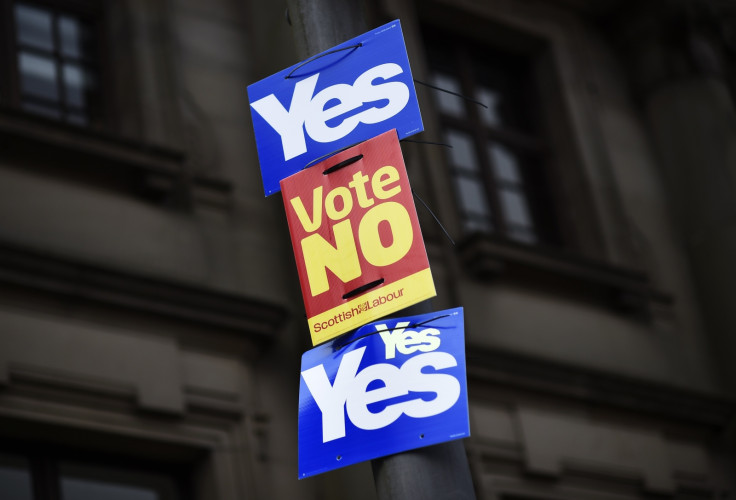Scottish Independence: Devo Max 'Could be Best of Both Worlds'

Economists may be worried that maximum devolution, dubbed "devo max", will cause a fracture in Britain's political landscape - but one private wealth manager says Scotland and the rest of the UK would hugely benefit from enhanced taxation powers if it stays within the 307-year old union.
Speaking to IBTimes TV, Ronnie Ludwig, private wealth accountant and partner at Saffery Champness in Edinburgh, revealed that there are investment opportunities with or without independence.
Ludwig said Scotland has seen a lot of money flowing out the country since the referendum was announced; once the results come in investors will be more confident about the security of their cash.
Ludwig also discussed the nightmarish question of deciding who is Scottish and who is English for tax purposes, and the far-reaching implications and also double taxation treaties.
Devo max is when a country, in this case Scotland, is given the power to control and create laws over everything other than defence and foreign affairs.
Scotland currently has the ability to create its own laws over 12 aspects of society such as education, environment and social services among others. Westminster retains the power to control major areas, such as benefits and social security, immigration, employment, and the energy industry.
Leaders of the three main parties at Westminster signed a pledge this week to devolve more powers to Scotland, if voters reject independence.
This includes "extensive new powers" for the Scottish Parliament "delivered by the process and to the timetable agreed" by the three parties. Final say on funding for the NHS will lie with the Scottish government too "because of the continuation of the Barnett allocation for resources, and the powers of the Scottish Parliament to raise revenue".
© Copyright IBTimes 2025. All rights reserved.






















